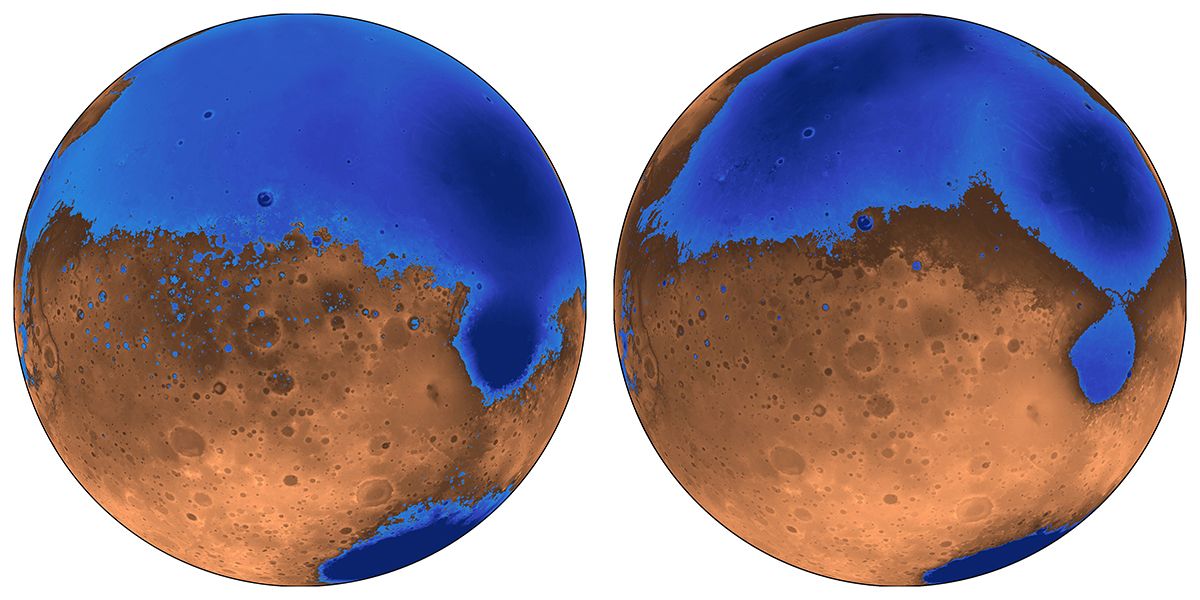
Scientists know that Mars used to be wet—covered by vast oceans—but they had a problem: Based on the ghostly shorelines left behind by these oceans, they could never quite figure out where all of that water could have gone.
The solution to that puzzle may lie in a gigantic volcanic region of the planet, which scientists call Tharsis, according to a new paper published in the journal Nature.
The Tharsis region isn't exactly a household name, but you're more familiar with it than you think you are: Its largest and most famous volcano is Olympus Mons, which is also the biggest in the solar system.
And the scientists realized the region may be key to explaining the water problem—the volcanoes could have distorted older shorelines and left oceans looking larger than they really were. And the volcanoes could even have been what allowed the oceans to form in the first place. Just like volcanoes here on Earth, large enough eruptions could have manipulated the Martian climate, warming it up enough for liquid water to stick around.
"This is a hypothesis," co-author Michael Manga, a geophysicist at the University of California, Berkeley, said in a press release. "Volcanoes may be important in creating the conditions for Mars to be wet."
Read more: NASA Is Practicing Its Next Mars Landing Using Crushed Gemstones
The new paper suggests that Martian oceans began to form at about the same time Tharsis was beginning to become active. Previously, scientists had thought that they would have arrived after the volcanoes had already been erupting for quite a while.
The study also argues that the oceans were forming over a long period of time, as the Tharsis region was continuing to change. Researchers believe that could be enough to explain the weird coastlines.
Uncommon Knowledge
Newsweek is committed to challenging conventional wisdom and finding connections in the search for common ground.
Newsweek is committed to challenging conventional wisdom and finding connections in the search for common ground.
About the writer
Meghan Bartels is a science journalist based in New York City who covers the science happening on the surface of ... Read more
To read how Newsweek uses AI as a newsroom tool, Click here.








